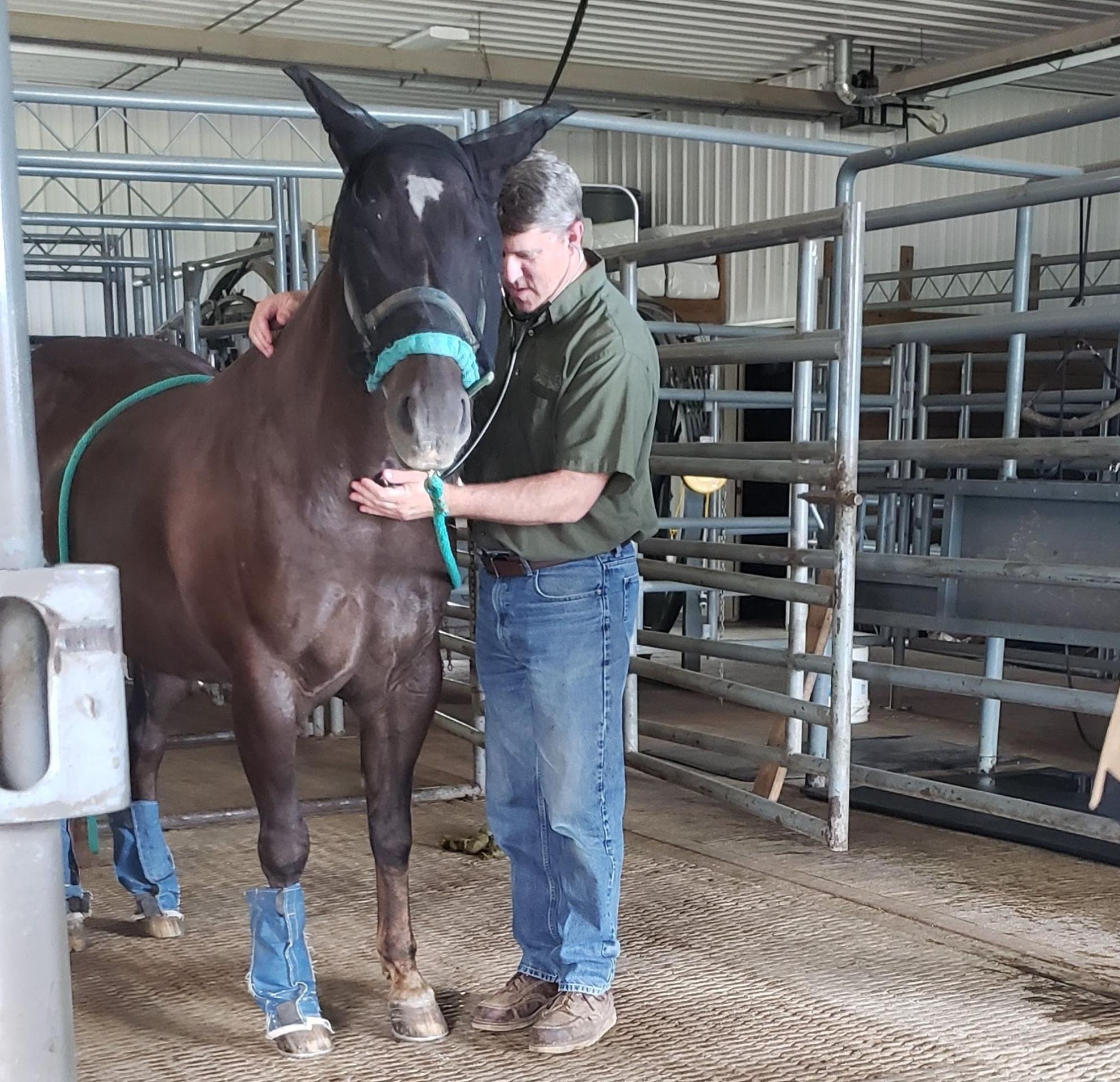
Equine Pre-Purchase Exams
When you’re considering purchasing a horse, whether for recreational riding, competition, or breeding purposes, it's essential to ensure that the horse is in good health and free from any hidden issues that could affect its performance or longevity. Dr. George offers pre-purchase exams to give you the information you need to make an informed decision. With years of experience in equine health, Dr. George provides clear, honest, and professional advice to help you make the right choice for your needs.
What Does an Equine Pre-Purchase Exam Include?
Our pre-purchase exams are thorough evaluations designed to assess the overall health and soundness of the horse. The goal is to identify any potential medical or physical issues that might affect the horse's performance or long-term health. A typical pre-purchase exam includes the following components:
-
Full Physical Exam:
- We start with a complete physical exam to assess the horse's overall health. This includes checking for any visible signs of illness, injuries, or deformities.
- Dr. George will evaluate the horse’s body condition, coat, and skin health, looking for abnormalities like lumps, sores, or scars.
- We also check the eyes, ears, mouth, and teeth to ensure there are no signs of infection, dental issues, or other concerns that could affect the horse's health.
-
Flexion Tests:
- Flexion tests are performed to evaluate the horse's limbs and joints for any signs of lameness or discomfort. By flexing the joints, we can help identify areas of inflammation, arthritis, or stiffness that may not be noticeable during normal movement.
- This part of the exam is essential to assess soundness and ensure the horse is physically capable of the type of work you plan to use it for, whether it’s riding, driving, or other activities.
-
X-rays:
- X-rays are used to provide detailed imaging of the horse’s bones and joints. This can help identify issues like arthritis, bone chips, fractures, or joint abnormalities that may not be visible through a regular physical exam or flexion tests.
- For horses that will be used for competitive activities or high-intensity work, x-rays are particularly useful in evaluating the long-term health of critical areas like the fetlock, hock, and coffin joints.
-
Soundness Evaluation:
- Dr. George will observe the horse’s gait and movement to check for any signs of lameness, uneven steps, or discomfort. This includes trotting the horse in a straight line and in circles to observe its performance and determine if any issues are present.
- We also assess the horse’s hoof health and overall posture to ensure proper alignment and function.
-
Basic Lab Work (if necessary):
- In some cases, Dr. George may recommend additional testing such as blood work to evaluate the horse's internal health. This can include checking for conditions such as infections, anemia, or metabolic issues.
